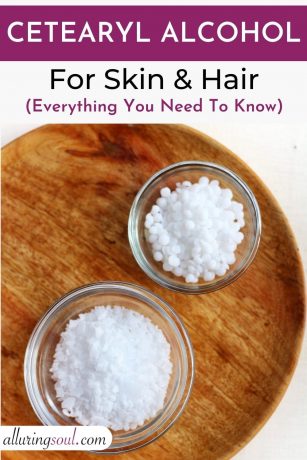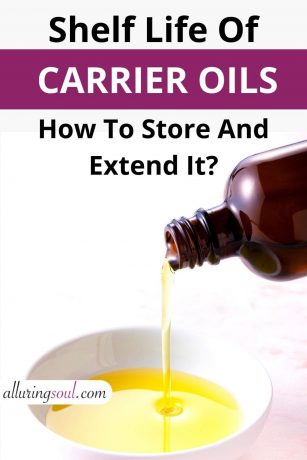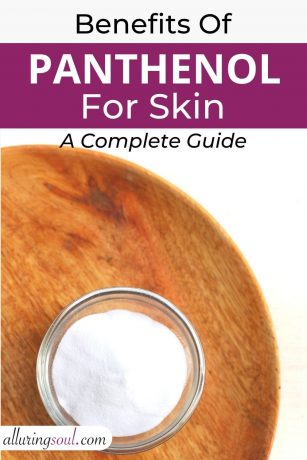The main difference between shea butter and coconut oil is that shea butter has ‘0’ comedogenic ratings, making it suitable for all skin types while coconut oil has a comedogenic rating of ‘4’, which is not suitable for oily & acne-prone skin. Because coconut oil can cause acne and clog your skin pores.
Another difference between coconut oil and shea butter is that shea butter is rich in Vitamin A and E, which means it boosts collagen production, moisturizes skin, and prevents early signs of aging whereas coconut oil is rich in lauric acid which is an excellent antibacterial and helps to treat skin conditions like eczema, psoriasis, and dermatitis.
How Is Shea Butter Extracted And What Are The Types Of Shea Butter?
Shea butter is a plant extract derived from the nuts of the shea tree, native to Western Africa. Depending upon the methods of extraction of shea butter, it can be of 3 types –
- Raw Shea Butter – It contains some impurities, has a characteristic smoky smell that comes from roasting and comes in yellow color.
- Unrefined Shea Butter – It is beige or ivory in color and can be filtered as long as the filtering methods don’t affect its quality. It does not contain any chemicals also.
- Refined Shea Butter – It is white in color, contains no impurities, and has no distinctive smell. It has less healing and moisturizing properties due to the heavy filtration method.
Which Is Better Shea Butter – For making skincare cosmetic products, it is recommended to use unrefined shea butter because it has fewer impurities and has 100% healing and moisturizing properties.
Benefits Of Shea Butter
- Suitable For All Skin Types – Shea butter has a ‘0’ comedogenic rating which means it is suitable for all skin types because it does not clog pores and cause breakouts.
- Rich In Vitamin A, E, and F – Shea butter helps to increase cell regeneration and moisturizes the skin deeply. It helps to prevent early signs of aging like wrinkles, age spots and makes the skin firm. It repairs and heals damaged skin and makes skin healthy and glowing.
- Shea Butter Conditions Hairs – It helps to condition dry, frizzy, and brittle hairs deeply due to its moisturizing properties. It prevents scalp infections, dry, and flaky skin. A study has also revealed it plays an effective role in preventing hair breakage.
- Anti-inflammatory And Anti-bacterial Properties – Shea butter has healing properties which help to calm red, irritate, and itchy skin. It moisturizes dry and flaky skin and helps to treat skin conditions like eczema, psoriasis, and dermatitis due to its antibacterial properties.
- Fatty Acids – Shea butter has emollient properties due to its rich concentration of stearic and oleic acids. These essential fatty acids hydrate and soften skin while strengthening the skin barrier. They can be easily absorbed by the skin and help to prevent stretch marks by increasing the skin’s elasticity.
How Is Coconut Oil Extracted And What Are The Types Of Coconut Oil?
Coconut oil is extracted from the meat of coconut fruit. Depending upon the extraction methods, coconut oil can be of 4 types –
- Virgin Coconut Oil – This type of coconut oil is unrefined and no heat methods are used to extract the coconut oil. Due to this, all the beneficial antioxidants, vitamins, and healing properties remain intact. It does not contain any chemicals or preservatives.
- Extra Virgin Coconut Oil – There is not much difference between virgin and extra virgin coconut oil. It’s not comparable with olive oil. It also contains all the nutrients and antioxidants that are good for healthy skin and hair. It is also chemical-free oil.
- Liquid (Fractionated) Coconut Oil – Fractionated oil does not have all the healing and moisturizing properties. It does not contain lauric acid, which has antifungal, antibacterial, and antiseptic benefits. It actually stays in liquid form at room temperature, while virgin coconut oil does not.
- Refined Coconut Oil – It is extracted from the dried meat of coconut fruit. High heat, chemicals, and preservatives are required to extract the coconut oil. It is not the purest form of coconut oil.
Which Is Better Coconut Oil – Virgin and extra virgin coconut oil are the primary options if you’re looking for making any skincare and haircare products. Because all the nutrients are present that are beneficial for healthy skin and hair. These types of coconut oil do not contain any chemicals and are preservative-free.
Benefits Of Coconut Oil
- Lauric Acid – It is a fatty acid that has antibacterial and anti-inflammatory properties. It is used for skin repairing and making skin moisturized. It helps to treat eczema, psoriasis, and other skin infections. It soothes red, itchy, and irritated skin and helps to heal the wounds.
- Caprylic Acid / Capric Acid – It has antimicrobial, anti-fungal, and antibacterial properties which fight bacterial infections. It exfoliates dead skin cells & dirt from pores and makes skin clear & soft. It helps to treat yeast infections and other skin conditions like eczema.
The antimicrobial properties of the oil may prevent and treat dandruff as it causes due to the overgrowth of fungus or yeast on the scalp. Coconut oil exfoliates blocked pores, promotes hair growth, and gives soft and shiny strands. - Antioxidants – Antioxidants like Vitamin E and Vitamin K are found in coconut oil. Vitamin E and K help repair and build healthy tissues. But it contains a lesser amount of vitamin E than shea butter. Due to the oil’s straight chemical structure, it is easier to get absorbed deeper in the hair shafts to provide moisture and nourishment. It also strengthens the hair, so it helps in reducing hair breakage and split ends.
- Other Fatty Acids – It has proven its ability to hydrate and nourish the skin with its high ratio of fatty acids, including linoleic acid known to retain or hold on to the skin’s moisture. It increases the skin hydration level by working its way to improve the skin’s barrier function.
Suitable For Skin Types – Since coconut oil has a ‘4’ comedogenic rating that means it has the ability to block skin pores. So, it is not suitable for oily and acne-prone skin.
Which Is The Best Moisturizer – Coconut Oil Or Shea Butter?
Both shea butter and coconut oil have great moisturizing, healing, and skin-repairing benefits. However, if you have to choose one over another then shea butter will be the best option. Because shea butter is suitable for all skin types and rich in vitamin E and A and anti-inflammatory properties.
You can also choose coconut oil or a combination of coconut oil and shea butter if you are not prone to acne. Combining both can give you the benefits of both ingredients and can provide you with great moisturizing benefits.
Table showing the difference between shea butter and coconut oil
| SHEA BUTTER | COCONUT OIL | |
| Extraction Method | Extracted from the nuts of the shea tree | Extracted from the meat of the coconut fruit |
| Comedogenic Rating | 0 (does not clog pores) | 4 (can clog pores) |
| Melting Point | 40 – 48 C | 20 C |
| Suitable For Skin Types | All skin types | Not for oily and acne-prone skin |
| Benefits | 1. Rich in Vitamin A, E, and oleic acid. 2. Helps to increase the hydration level of the skin and moisturizes the skin deeply. 3. Great for deep conditioning, treatments, and repairing damaged hair. | 1. Rich in lauric acid. 2. Antibacterial and antimicrobial properties treat skin and scalp infection. 3. Great for adding moisture to hair shafts. |







No Comments